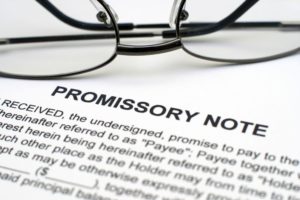How to Get Around the Due on Sale Clause

The due on sale clause is found in most Missouri mortgages. It is also called an acceleration clause. A Missouri mortgage consists of a promissory note and a deed of trust. The deed of trust secures payment of the note.
The Due on Sale Clause Problem
Most notes and deeds of trust include a due on sale clause. A due on sale clause allows the lender to demand full payment of the note when all or part of the property securing the note is sold or transferred without the consent of the lender.
The due on sale clause is a problem for many homeowners and investors in residential property. Many people who reside in the real estate owned by them want to transfer the real estate to a revocable trust for estate planning purposes. Real estate investors who obtain a loan in their individual name to purchase investment property want to then transfer title to a limited liability company for personal liability protection. The due on sale clause presents a problem for both types of owners. The U.S. federal government enacted the Garn-St. Germain Depository Institutions Act in 1982 to address this problem. However, the Garn-St. Germain Act helps the owner who lives in the property, not the investor.
Garn-St. Germain Act
The Garn-St. Germain Act prohibits a mortgage lender from exercising a due on sale clause when title to residential property, with less than five units, is conveyed to a revocable trust. However, the borrower must occupy the property, and the borrower must be, and remain, a beneficiary of the trust. (This protection from the due on sale clause may not apply in some circumstances when the lender is not a federal savings association.)
Investor Schemes
Some so-called real estate experts, and even some attorneys, promote a scheme whereby a real estate investor who owns residential property in the individual name of the investor forms an LLC and a revocable trust. The investor is designated as both the trustee and a beneficiary of the trust. The investor then assigns the investor’s beneficial interest in the trust to the LLC, thereby supposedly giving the investor the personal liability protection of the LLC, while avoiding the due on sale clause. This scheme does neither. Moreover, a borrower undertaking this scheme could be prosecuted for mortgage fraud, which occurs when a borrower either makes a false statement to, or conceals material information from, a mortgage lender.
This article is for general informational purposes only, and it is not intended as legal advice. Sewell Law provides professional legal services in the areas of real estate and business law, including litigation. Please contact Michael Sewell, MBA, JD at (314) 942-3232 or at michael@sewelllaw.net to discuss your legal matters.
The choice of a lawyer is an important decision and should not be based solely upon advertisements.
© 2018 Sewell Law, LC


